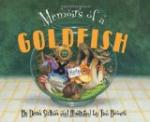An acquaintance of mine took his wife and a couple of friends one evening to what is known as L’Abbaye, in Montmartre. Knowing that it had a reputation for being expensive, he resisted, somewhat self-consciously, the delicate suggestions of the head waiter and ordered only one bottle of champagne, caviar for four, and a couple of cigars. After watching the dancing for an hour he called for his bill and found that the amount was two hundred and fifty francs. Rather than be conspicuous he paid it—foolishly. But the American who takes his wife abroad must have at least one vicarious taste of fast life, no matter what it costs, and he is a lucky fellow who can save anything out of a bill of exchange that has cost him five thousand dollars.
After dispassionate consideration of the matter I hazard the sincere opinion that my actual disbursements during the last ten years have averaged not less than one hundred thousand dollars a year. However, let us be conservative and stick to our original figure of seventy-five thousand dollars. It costs me, therefore, almost exactly two hundred dollars a day to support five persons. We all of us complain of what is called the high cost of living, but men of my class have no real knowledge of what it costs them to live.
The necessaries are only a drop in the bucket. It is hardly worth while to bother over the price of rib roast a pound, or fresh eggs a dozen, when one is smoking fifty-cent cigars. Essentially it costs me as much to lunch off a boiled egg, served in my dining room at home, as to carve the breast off a canvasback. At the end of the month my bills would not show the difference. It is the overhead—or, rather, in housekeeping, the underground—charge that counts. That boiled egg or the canvasback represents a running expense of at least a hundred dollars a day. Slight variations in the cost of foodstuffs or servants’ wages amount to practically nothing.
And what do I get for my two hundred dollars a day and my seventy-five thousand dollars a year that the other fellow does not enjoy for, let us say, half the money? Let us readjust the budget with an idea to ascertaining on what a family of five could live in luxury in the city of New York a year. I could rent a good house for five thousand dollars and one in the country for two thousand dollars; and I would have no real-estate taxes. I could keep eight trained servants for three thousand dollars and reduce the cost of my supplies to five thousand almost without knowing it. Of course my light and heat would cost me twelve hundred dollars and my automobile twenty-five hundred. My wife, daughters and son ought to be able to manage to dress on five thousand dollars, among them. I could give away fifteen hundred dollars and allow one thousand for doctors’ bills, fifteen hundred for my own expenses, and still have twenty-three hundred for pleasure—and be living on thirty thousand dollars a year in luxury.




